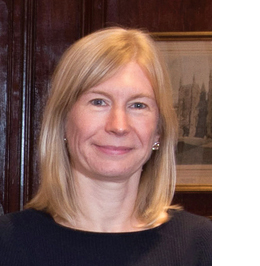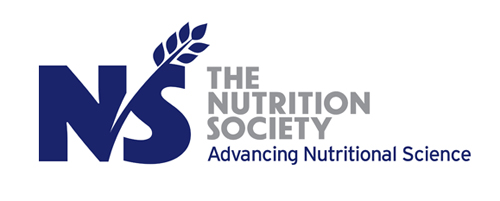Committee, Council & SIG Updates
Malnutrition Action Group (MAG)

Rebecca Stratton, Chair, Malnutrition Action Group
2018 is already off to a good start for MAG!
We have set the priorities MAG for the coming year:
- To raise awareness of the prevalence and costs of malnutrition and the importance of detecting and managing malnutrition across the UK
- To improve the use of ‘MUST’ and the Nutrition Care Tool by continuing to make sure ‘MUST’ and the Nutrition Care Tool are ‘fit for purpose’ and used effectively across and between health and social care settings.
Plus, to support our aims, we have been pursuing funding for research initiatives and are delighted to announce that the Trustees of The British Dietetic Association General & Education Trust have awarded a grant of £50,000 to support ‘A James Lind Alliance project to determine priorities for research on malnutrition and nutritional screening in partnership between patients, carers and healthcare professionals’. This will establish a patient and professional partnership to develop research priorities for nutrition screening and malnutrition in adults. The project will run for the next 18 months and involve reviewing the current evidence base to identify uncertainties and also conduct a survey of professionals, patients and carers to ask what are the future research priorities in the area of nutritional screening and malnutrition.
Look out for the questionnaire as we will be asking BAPEN members and other professional groups to have their say in setting the research priorities. Well done to Dr Sorrel Burden who secured the funding and is leading this research project! Research is also ongoing on self-screening, to publish the research on the validity and ease of use of patients self-screening using an electronic version of ‘MUST’. Further updates will be available later this year.
Nutritional Care Tool update
Thank you to everyone who is continuing to use the Nutritional Care Tool, so we can build a picture of nutritional management across the UK. We are really excited that we will be working to make sure that the Nutritional Care Tool will be updated to allow centres that are using it to get their own data out to monitor their own results and progress! We hope to be able to do this before the Data Collection Week: Week commencing 12th March 2018 (Nutrition and Hydration Week).
‘MUST’ update
It’s not typical to see mention of malnutrition and ‘MUST’ in the press, but the launch of the All Party Parliamentary Group (APPG) on hunger’s report on ‘Hidden hunger and malnutrition in the elderly’ received a lot of attention in January 2018. The report recommended the following:
‘We call on the Secretary of State for Health and Social Care to ensure that at all levels of care, staff are trained to use the Malnutrition Universal Screening Tool, or an equivalent mechanism, to identify older people who are at risk of malnutrition and ensure they receive appropriate food and support to improve their condition’
Let’s hope this press attention can help to improve awareness, detection and management of this costly condition to help improve people’s lives.
Nasogastric Tube Special Interest Group (NG SIG)

Mia Small, Chair NG SIG
Email: mia.small@nhs.net
Website: www.bapen.org.uk/about-bapen/committees-and-groups/bapen-special-interest-groups/ng-sig
The Nasogastric Tube Special Interest Group (NG SIG) was formed in late 2016 and is co-chaired by Dr Trevor Smith, Consultant Gastroenterologist (Southampton) and Mia Small, Nurse Consultant (St Mark’s). The core committee comprises physicians, nurses and dietitians, and there is representation from adult and paediatric practice, acute and community, and also Scotland and Wales.
Work continues on three key workstreams:
- Clinical evidence group
- Thematic analysis of Never Events (UK)
- Novel technologies and equipment evaluation (utilising NICE Technologies Appraisal Guidance).
A symposium was held at the BAPEN Conference in November 2017, where the results of a national survey of NG practice were shared, along with analysis of currently available 0.5 increment CE marked indicators and the initial evaluation of a photometer to assess pH.
The survey looked at the number of Never Events trusts had had since 2009, which pH indicators are used, what cut off value is used, and whether single or double checking was undertaking. There were 34 responses:
- 22(64%) had had a Never Event in their Trust; 41% having had 1, 23% having 2, 13% having 3 and 23% having had 4
- The most common root cause was misinterpreted x-ray (13), followed by pH (10), position not checked (8), misinterpreted Cortrak (2), auscultation (1) and unknown cause (2)
- The most commonly used pH indicator was Enteral UK 2-9 (10), followed by Merck 2-9 (8), Merck 0-6 (6), Entral (3), Johnson 0-6 (2), Johnson 2-9 (1)
- 71% of responders had been involved in the decision behind which indicator was used in their trust
- The majority of responders (59%) used a cut of value of 5.5 or below, 32% using 5 or below and 6% using 4.5 or below
- Most responders 71% use single checking on initial placement but only 50% did on subsequent checks.
The results of an in-depth analysis of CE marked 0.5 increment pH indicators was also presented which has particular relevance given that the Merck products are no longer available. The evaluation specifically addressed inter rater reliability, the impact of time on the result and the ease of matching the colours of the individual indicators. The results showed significant differences in the performance of the indicators. In particular, the time taken to read the result can impact on the clinical decision. The accuracy of the indicators is also affected by which cut of value is used, and there was significant inter rater variation, supporting the need for a less subjective method of assessment. These results have led to collaboration with industry in order to improve the performance of the indicators.
Initial evaluation of the photometer machine to assess pH was promising, showing a good correlation with the results obtained by a pH meter.
Moving forward, a meeting with NHS Improvement is scheduled (Feb 2018) in order to begin a thematic analysis of Never Events. There will also be a large scale in-vitro study evaluating independent vs. double checking of pH indicators and further evaluation of newly developed CE marked pH indicators and alternative methods of assessing pH. These findings will be disseminated at a symposium at the BAPEN Conference in November 2018.
The Nutrition Society


Dr Bernadette Moore, University of Leeds, The Nutrition Society Clinical/Medical Advisory Council member and Nutrition Society Summer Conference 2018 programme organiser
Email: office@nutritionsociety.org
Website: www.nutritionsociety.org
The Nutrition Society’s mission is to advance the scientific study of nutrition and its application to the maintenance of human and animal health. The Society is led by a Board of Trustees who are advised by Advisory Council members. Each Advisory Council member represents the diverse range of the Society’s members including clinicians, medical and health professionals.
The Society is a not for profit, membership organisation and is one of the largest learned societies for nutrition in the world. The Society provides many services and activities to enable a platform to develop and disseminate nutrition research. Opportunities provided by the Society include networking which enables collaboration amongst researchers, health professionals, policy makers and academics.
The annual flagship Summer Conference is a key activity in the Society’s calendar. This year’s conference will be held on 10 -12 July 2018 at the University of Leeds. The theme of the conference is energy balance regulation. The Scientific Organising Committee have organised a multidisciplinary programme examining the myriad of influencing factors on energy balance, and addressing varying needs across the lifespan. The effects of lifestyle factors, diet, physical activity, epigenetics and the gut microbiome will be addressed.
The Society is pleased to host a variety of speakers from across the world during the three-day programme including Rank Prize Plenary Lecture; Professor Michael Goran from University of Southern California, USA, who will address the hotly debated topic of the role of dietary sugars in disrupting energy balance as a risk factor for obesity and metabolic syndrome. Other plenary speakers, including Professor Helen Truby from Monash University in Australia, will present on appetite, behaviour and the challenge of compensation in weight management. View the full programme, register for a place and read further conference details on the Society’s website.
The Nutrition Society’s social media feeds are regularly updated with new and emerging research and details about the Society’s activities. Follow and connect with the Society via Twitter, Facebook, LinkedIn and Instagram to be kept up-to-date.
